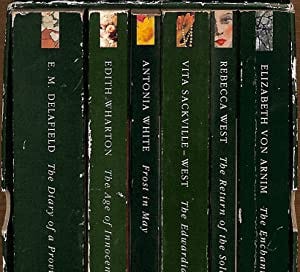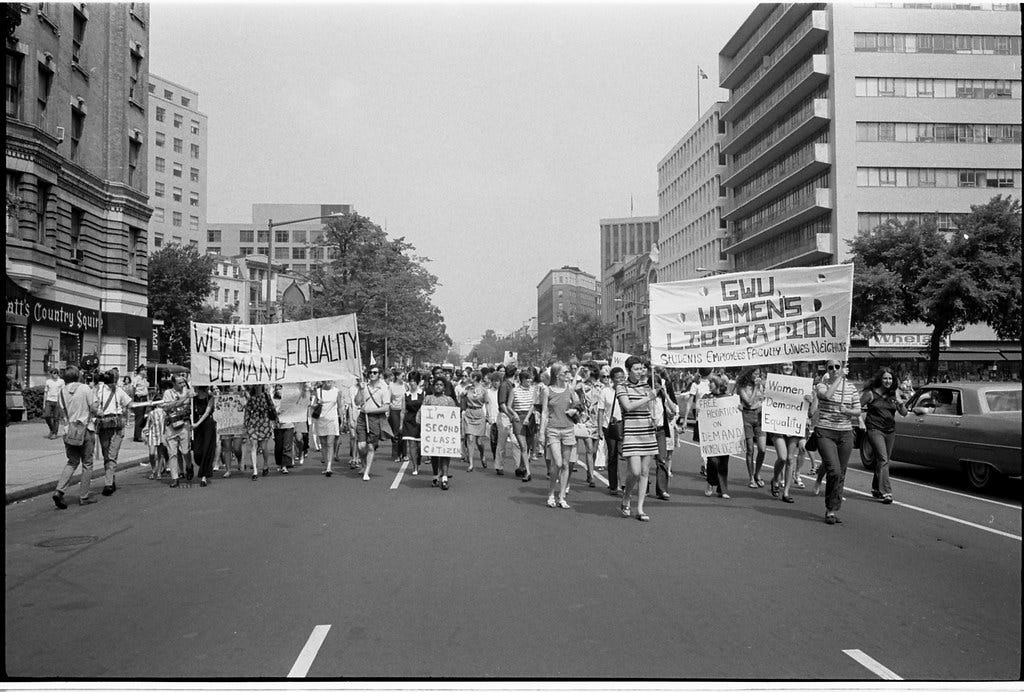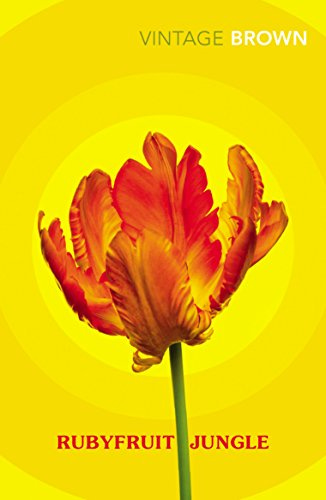This June sees the 50th anniversary of Little, Brown’s feminist imprint, Virago Press, originally set up by the late Carmen Callil as a way to see more women’s writing and feminist books published.
Plans to celebrate include the re-release of some of their classic, iconic feminist texts such as books by Sarah Waters and Angela Carter, as well as releasing the whole of Maya Angelou’s memoirs as modern classics. A short story competition is to be announced, featuring authors from under-represented backgrounds, as well as seeing the publication of a new short story collection, Furies, featuring such authors as Margaret Atwood.
Initially acquiring many feminist texts in the early days of second-wave feminism in the 1970s, the publishers have admitted to struggling to acquire some titles in the current climate, due to more women’s work being published. In the past, they may have been the only publishers bidding for the opportunity to publish, such was the case with Maya Angelou’s first memoir, I Know Where the Caged Bird Sings, which had been previously refused by UK publishers due, according to Angelou, UK publishers not believing that readers would be interested in the life story of a young Black girl growing up in the Deep South.
It could be said that Virago are victims of their own success. They have said however that they are still here for the marginalised and underrepresented authors, and want to expand their list to be more inclusive. Interestingly, the imprint changed its wording in 2021 to represent an inclusive feminism, opening up to receiving manuscripts from what they term ‘underrepresented genders’.
Virago began in the 1970s, run by a group of women and bolstered by the success of the Women’s Liberation Movement to tackle the inequalities of gender in publishing. Other smaller, anti-capitalist publishing projects and zines had been putting out similar work, but Virago wanted to brand itself as a commercial publishing imprint, able to compete with the male-dominated mainstream publishing houses.
Founded in 1973 by Callil, its original name was Spare Rib Books taken from the name of the most successful feminist magazine issued in 1972, and its original aim was simply to publish more women writers. Even from its conception, Virago published both new works by women as well as re-issuing often out-of-print and neglected books, giving them the name ‘Modern Classics’.
The imprint has weathered its fair share of changes over the years. The 1980s saw it become a subsidiary of the CVBC publishing group, leading to founder Callil and others staging a management buy-out in 1987. After the 1990s downturn in publishing, the imprint was sold to Little, Brown in 1996, which attracted some negative publicity over the future of feminist publishing. It has however weathered the vagaries of the industry, and remains true to its original inception.
In the US, a similar venture began in 1972 with publishers Daughters, Inc., a self-defined feminist community operating between New York and Vermont and publishing women’s writing formed by June Arnold and Parke Bowman.
Purchasing a brownstone in New York to house their activities, around a dozen or so women worked with women’s printing company Tower Press to co-ordinate the feminist press, working in a landscape which saw more feminist owned businesses springing up to support the cause.
These such businesses often had a reputation as ‘separatist’ spaces with stories reported of not allowing men or adolescent boys to access bookstores and other feminist owned businesses. Such feminist presses must surely have inspired the novel Big Women by Fay Weldon, a story of a group of women who set out to set up a women’s publishing house, and the in-fighting and disagreements about what constitutes a ‘true’ feminist.
Whereas some feminist presses springing up at around this time published only texts with a clear political message, like Virago Daughters chose to publish a more wide-ranging list. Also similar to Virago, the press published both newly written novels by women, as well as re-discovering pre-feminist works.
The press sometimes faced difficulties in their mission to work only with women-owned companies. After they successfully acquired and published Rita Mae Brown’s Rubyfruit Jungle and selling out of its seventh print-run, the founders were faced with the decision of whether to sell the reprint rights to a larger commercial publisher, Bantam Books.
At the time, the feminist owners of the imprint saw this as selling-out, though the author was all for the sale, and the rights eventually sold to Bantam for $250,000 in 1977, with Daughters and Brown splitting the proceeds.
Such decisions were difficult for the feminist owned businesses because they negated the very idea of dealing with women-only owned businesses, and therefore retaining full economic independence. To allow for such presses to become commercially successful, however, enabling them to sign more authors and pay better advances to their female writers, such offers had to be carefully considered. Brown’s novel for example went on to sell well over a million copies after it was released by Bantam, allowing for a much larger readership to discover Brown’s seminal lesbian text.
Successful feminist ventures were also often criticised by some extremists for being too successful. Capitalist success was seen as something inherently male, and therefore undesirable, whereas the movement saw liberation as ideologically pure. Some within the US feminist press also saw their role as attempting to take over the mainstream media. Though their goals seemed somewhat ambitious, the feminist presses regularly reached a readership of over 300,000 women and alerted members of the movement to conferences, rallies, and festivals.
Unlike Daughters, Inc., who sadly closed its doors in 1978, Virago has gone on to endure 50 years of feminist publishing, introducing the reading public to both contemporary women’s works as well as modern classics by unknown writers. It seems that part of their success lies in both their ability to adapt to changing markets, and their convictions to remain true to their original aim: to print more books by women.







A really interesting article. I read about the internal wrangling of Virago a few months ago and just assumed it had gone, or was going, the way of all flesh so to speak. It's good to know that it isn't.
What a fascinating look back! I’d forgotten about some of those publications and the roles they played in the burgeoning feminist movement. And now you’ve provided the inside stories.
I’m glad to see Virago is still going strong, changing with the times but still true to their original mission.